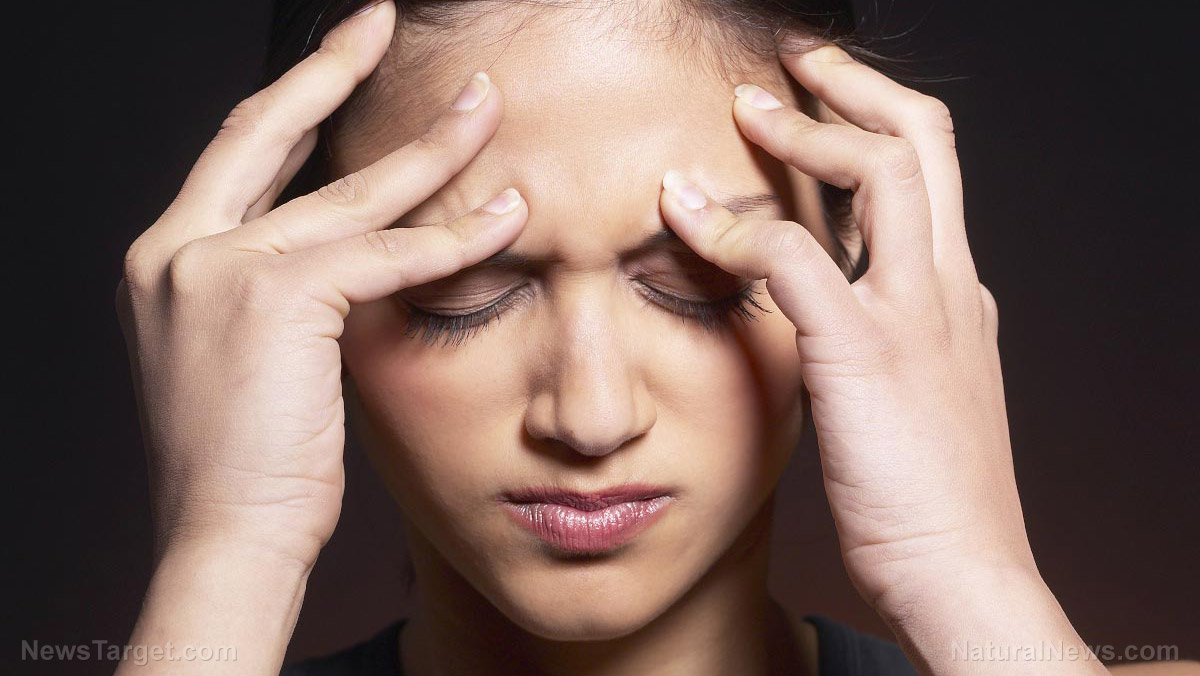Could you be suffering from a dehydration headache?
05/26/2017 / By Bridgette Wilcox

Common as they are, headaches can be caused by a great number of things. What many people don’t realize is that dehydration is one of them. According to MedicalNewsToday.com, not having enough fluid in the body causes what is called a dehydration headache, which occurs when the brain pulls away from the skull as it shrinks temporarily due to the lack of fluid.
Recognizing a dehydration headache from other types of headaches is important, so you can treat it appropriately and avoid over-medication. It is important to keep in mind that a dehydration headache is different from a sinus headache or a tension headache in that the pain is contained in the area of your head, whether front, back, side, or all over. With dehydration headaches, you don’t feel facial pressure or pain the back of your neck. The pain can sometimes feel dull or intense, like a migraine.
Other dehydration symptoms also occur, including extreme thirst, reduced and dark-colored urine, confusion, dizziness, fatigue, dry mouth, loss of skin elasticity, low blood pressure, and increased heart rate. If these symptoms occur along with pain in your head, you are probably experiencing a dehydration headache.
Obviously, the cause of this type of headache is dehydration, which is, simply put, when your body lacks the amount of fluids it needs. This can be caused by any number of conditions that involve the expulsion of fluids from the body: diarrhea, vomiting, extreme sweating, fever, and excess urination, to name a few.
While anyone can be dehydrated, some people are more at risk. People who live in high altitudes and hot climates are more susceptible to dehydration, as well as the elderly, infants and young children, and endurance athletes. People who have diabetes or kidney disease also carry a higher dehydration risk, as well as those on diuretic medication.
The power of the elements: Discover Colloidal Silver Mouthwash with quality, natural ingredients like Sangre de Drago sap, black walnut hulls, menthol crystals and more. Zero artificial sweeteners, colors or alcohol. Learn more at the Health Ranger Store and help support this news site.
So how do you treat a dehydration headache?
Once you’ve determined that you have a dehydration headache, increase your fluid intake right away! When rehydrating, make sure to reduce sweating by staying in cooler temperatures and decreasing physical activity. These simple things should be enough to relieve your dehydration headache, though it make take some time before the pain abates completely. To accelerate the relief, you may want to try some natural headache remedies. These include the following, as mentioned on EverydayHealth.com:
- Lavender, peppermint, or basil oil – These can be inhaled or applied topically.
- Scalp massage – Massaging the temples and base of your skull can provide some pain relief, though you may also want to try massaging reflex points in your hands and feet to see if it has an effect.
- Feverfew – Take the leaves of this plant by mouth or take it as an oral supplement.
- Flaxseed – Whether as an oil, ground up, or as whole seeds, the omega-3s in this can help alleviate your headache.
Ultimately, preventing a dehydration headache is simpler than treating it. To avoid dehydration, make sure to drink between six to eight cups of water a day and incorporate foods like cucumbers and fruits into your diet, as these have a high water content. Spread your fluid intake throughout the day instead of drinking it all at once, and consider hydrating more when you anticipate more sweating — when temperatures are high, for instance, or when you’re exercising. Avoiding caffeine and alcohol can also help prevent dehydration, as these drinks are diuretics and can cause your body to lose more fluid.
Get more stories like this on HealingArts.news.
Sources include:
Tagged Under: dehydration, dehydration headaches, headache relief




















